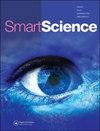考虑可再生能源不确定性影响的智能电网需求侧管理方案的性能提升
IF 1.4
Q2 MULTIDISCIPLINARY SCIENCES
引用次数: 0
摘要
摘要在未来一日电力市场中,电力市场的所有参与者,即电力用户、集成商和电网运营商都迫切希望实现各自的利润增长,但如何同时保证所有参与者的利润是一项非常具有挑战性的任务。本文结合需求侧管理(DSM)和动态经济排放调度(DEED)的概念,提出了一个多目标问题。采用类顶优化算法对多目标DSM - DEED问题进行了优化。此外,提出了一种能量管理算法(EMA),在存在RESs不确定性的情况下,实现各种能源的最优电力利用,实现负荷需求与发电量的匹配。为了得到一个准确的模型,本文考虑了一种基于随机森林回归的机器学习方法来预测24小时内的负荷需求、风能和太阳能。这里的目标是同时优化一天的负荷消耗和发电模式,以提高负荷系数,最小化运营成本,同时最大化电力市场所有候选企业的利润。仿真结果强调了拟议的EMA和修改后的DSM计划对智能电网的经济和性能的影响。图形抽象本文章由计算机程序翻译,如有差异,请以英文原文为准。
Performance enhancement of smart grid with demand side management program contemplating the effect of uncertainty of renewable energy sources
ABSTRACT In a day ahead electricity market, all candidates of the electricity market, i.e. electricity users, aggregator, and grid operator urge to grow individual profit, but it is quite challenging to assure profit for all the candidates at a time. In this work, a multi-objective problem is formulated by combining the concept of demand side management (DSM) and Dynamic Economic Emission Dispatch (DEED). The multi-objective DSM – DEED problem is optimized by class topper optimization algorithm. In addition, an energy management algorithm (EMA) is proposed for optimal power utilization from various energy sources and to match the load demand with generated energy in presence of uncertainties of RESs. To get an accurate model, a random forest regression-based machine learning approach is considered in this paper to predict load demand, wind, and solar power on an hourly basis for a span of 24 hours. The objective here is to optimally schedule load consumption and power generation patterns simultaneously for a day to improve load factor, minimize operational cost, and maximize the profit of all the candidates of the electricity market simultaneously. The simulation findings highlight the effects of the proposed EMA and modified DSM program on the smart grid’s economy and performance. GRAPHICAL ABSTRACT
求助全文
通过发布文献求助,成功后即可免费获取论文全文。
去求助
来源期刊

Smart Science
Engineering-Engineering (all)
CiteScore
4.70
自引率
4.30%
发文量
21
期刊介绍:
Smart Science (ISSN 2308-0477) is an international, peer-reviewed journal that publishes significant original scientific researches, and reviews and analyses of current research and science policy. We welcome submissions of high quality papers from all fields of science and from any source. Articles of an interdisciplinary nature are particularly welcomed. Smart Science aims to be among the top multidisciplinary journals covering a broad spectrum of smart topics in the fields of materials science, chemistry, physics, engineering, medicine, and biology. Smart Science is currently focusing on the topics of Smart Manufacturing (CPS, IoT and AI) for Industry 4.0, Smart Energy and Smart Chemistry and Materials. Other specific research areas covered by the journal include, but are not limited to: 1. Smart Science in the Future 2. Smart Manufacturing: -Cyber-Physical System (CPS) -Internet of Things (IoT) and Internet of Brain (IoB) -Artificial Intelligence -Smart Computing -Smart Design/Machine -Smart Sensing -Smart Information and Networks 3. Smart Energy and Thermal/Fluidic Science 4. Smart Chemistry and Materials
 求助内容:
求助内容: 应助结果提醒方式:
应助结果提醒方式:


